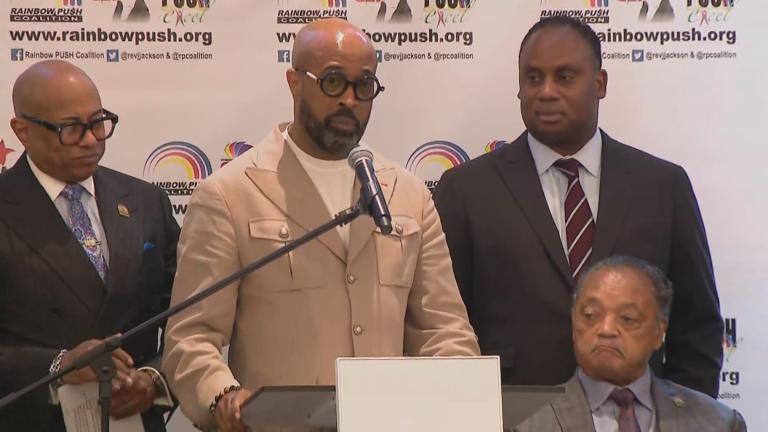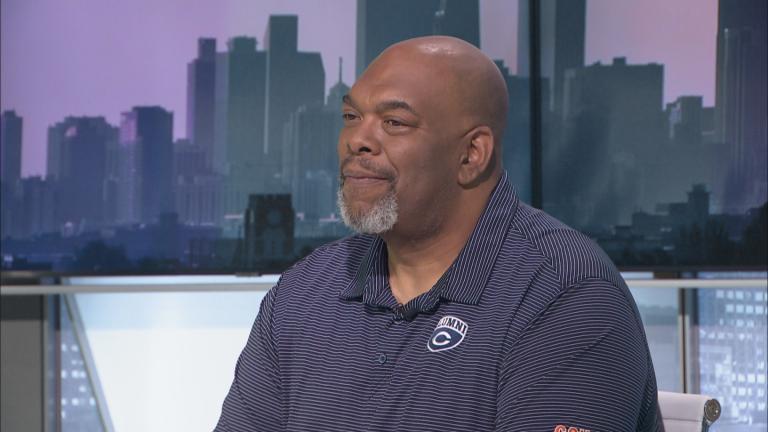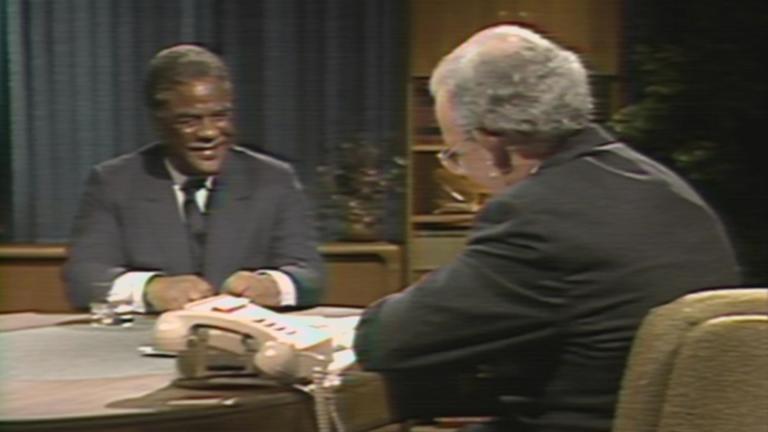Last month’s U.S. Supreme Court decision ending affirmative action has rising high school seniors and their parents navigating a new landscape while preparing college applications. Considerations start with getting admitted and continue with questions of an institution’s ongoing commitment to diversity and inclusion once students get inside the gates.
Chicago Scholars CEO Jeffery Beckham Jr. said his organization is still gathering data for the students it serves.
“What we’re doing is really trying to get a firm hold of what’s going to happen,” Beckham said. “We’re talking to our institutions and our college partners. We’re telling our kids to continue to pursue the highest-level schools that they can, to believe in themselves and realize that they are the customer. They do hold the power and the decision that they’re going to make when they’re picking the college. The parents are worried. There’s concern about what’s going to happen … about the financial implications of this. Like, will this eliminate scholarships that were once there for their students to access?”
Kevin Krebs, founder of HelloCollege, said there are still plenty of ways applicants can distinguish themselves in an essay. The company offers free workshops on aspects of the application process.
“Every student has an ability to shape their story and their application and their essays and tell it in a very authentic way,” Krebs said. “And I think for a lot of applicants, they need to understand how that process works, how the colleges are going to evaluate them, and maybe it’s going to change. But I think the earlier they get the advice on how to handle this and talk about their family backgrounds and maybe the adversities that they’ve had to overcome, the essays and the applications and then the demonstrated interest visiting colleges and talking to the reps, those are all ways that these students can take control of their admissions situation. Things like family responsibilities, jobs, things that you’ve had to overcome in your community — these are ways to authentically share your story that colleges can relate to because the grades are the grades, the test scores are the test scores. They want to get to know who you are as a person.”
Bottom Line Chicago works with first-generation college applicants to help mentor them through the process. Executive director Will Hobart said the students are given information that helps them figure out not just where they can get admitted, but where they can thrive.
“One of the things that we talk about the most is, where do you get a sense of belonging?” Hobart said. “Where do you feel like the college community is embracing all of who you are and all of the identity markers that you hold? Giving students the data, the information that they need to make an informed decision about what colleges have not just recently started to embrace thinking about diversity in all of its form but have been doing it for years. And that’s something we’ve really done a lot of work in the past 10 years here in Chicago is developing strong partnerships with colleges that really lean and lead in this particular area.”
Beckham said before the Supreme Court decision was made, he checked in with colleges across the country to see what their diversity strategies might be once affirmative action was ended.
“A lot of those schools are in states where legislation was already in place to eliminate race-based admissions, and so the schools are really trying to be better and be a better partner to institutions like ours … out there to find the students, to make sure that their populations and demographics of campus is still racially diverse,” Beckham said.
With institutions like Carnegie-Mellon, the University of Pittsburgh and Wesleyan University announcing an end to legacy admissions, Krebs said that could be one way to maintain space for students from marginalized backgrounds.
“I think at the end of the day, there’s a total lack of transparency in higher education that makes this process confusing for a lot of families,” Krebs said. “And I think if we all know what we’re playing against, then it’s going to equal the playing field for a lot of us. I think if there are fewer legacy spots, I think that’s going to open up a lot more seats at the table. And I think it’s the right decision.”
Hobart said Bottom Line Chicago is waiting to see how financial assistance packages might be affected by the decision as the admission process unfolds.
“Affordability is such an important part of our college-going process journey with students,” Hobart said. “We really work with students to help them understand what the true cost of college is at each institution. Many institutions are very good at offering a lot of financial aid that isn’t just in the form of scholarships but helping students kind of put together federal aid, state-based aid that really helps make those college opportunities affordable.”
Beckham also advises students to do their homework about campus life.
“We always talk about telling our students to find people on campus, making sure that there’s a point of contact on campus, a person that you have that you can go to, not just in the admissions process, not just that counselor, but someone that’s actually a physical person on campus while you’re there,” Beckham said. “We also tell the students to make sure they’re talking to other students that are there. We’re fortunate enough to have over 5,000 students in our program historically go through our program, 3,000 currently in college. And so we usually have a student on campus where someone’s there that they can talk to, who came from a similar background that they do. So we’re telling them, go ask all the questions, show up, be present if you can take advantage of the fly-in days that schools have because that’s when you’ll get to see and get a real feel of what’s real and what’s not.”








